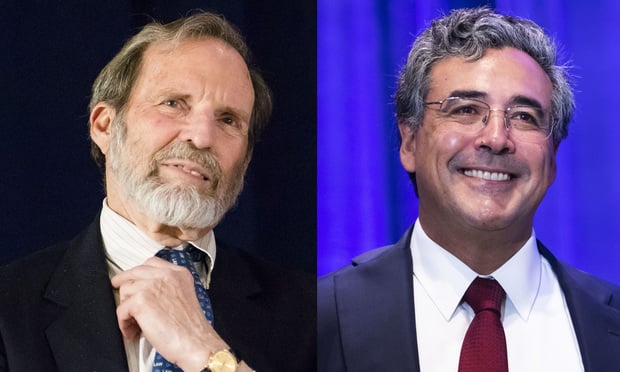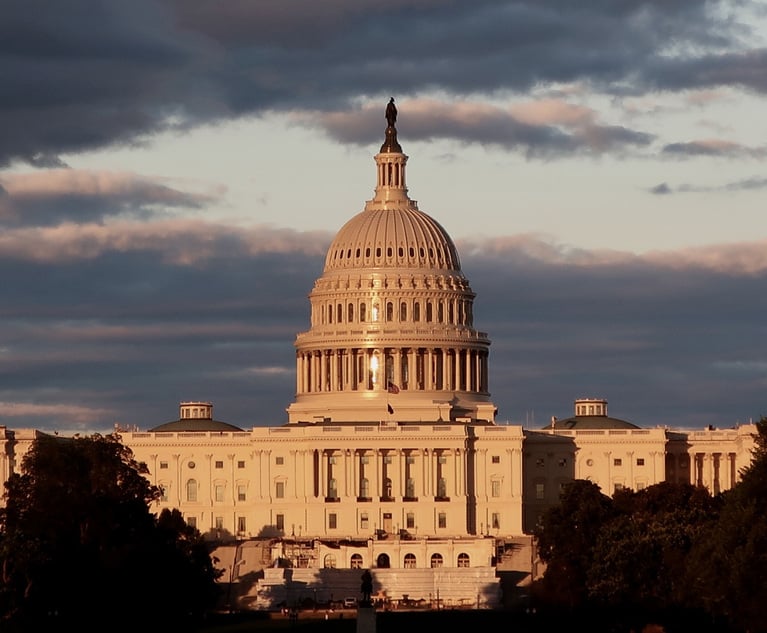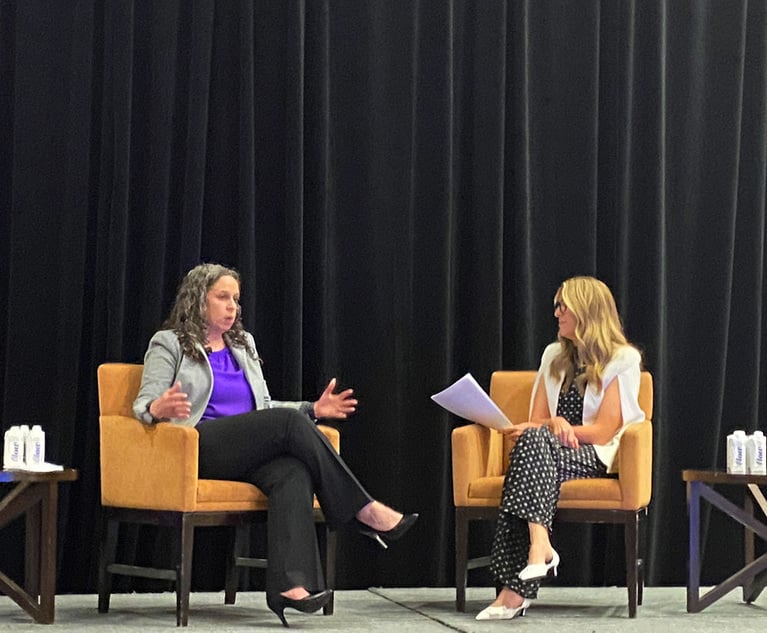As Mexico races to avoid punishing tariffs proposed by the Trump Administration, a quiet fight over the constitutionality of the president’s power to impose certain trade tariffs is underway in the U.S. Supreme Court.
Later this month, the justices will take their first look at a petition in which the American Institute for International Steel and others contend that a provision in the Trade Expansion Act of 1962, used last year by President Donald Trump to impose “national security” steel and aluminum tariffs, is an unconstitutional delegation of Congress’ power to the president that violates the Constitution’s separation of powers.


 Alan Morrison, Lerner Family Associate Dean for Public Interest and Public Service Law at George Washington University Law School, left, and U.S. Solicitor General Noel Francisco, right. Photos: Diego M. Radzinschi/ALM
Alan Morrison, Lerner Family Associate Dean for Public Interest and Public Service Law at George Washington University Law School, left, and U.S. Solicitor General Noel Francisco, right. Photos: Diego M. Radzinschi/ALM





